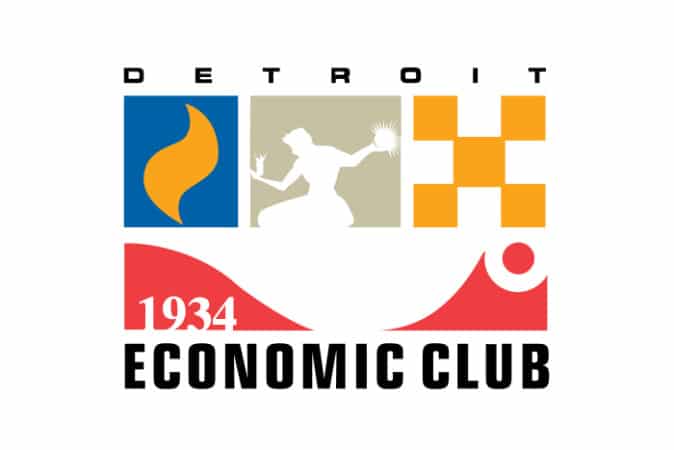In 1996 Exxon Corporation’s Chairman Lee Raymond delivered a speech titled “Energy, The Economy, And The Environment: Moving Forward Together” to the Economic Club of Detroit. Raymond underscored the common bonds and past accomplishments of the petroleum and automotive industries in “fighting a battle against misinformation.” Outlining “the need for economic growth and energy development while recognizing the impact on the environment,” Raymond pressed for the increased consumption of fossil fuels and deflected their impact on the environment. Raymond sought to dispel the “two major fears” surrounding oil (i.e. supply and environmental impact) by questioning the integrity of the “critics,” “ideologues,” and “extremists.”
Issues of “strong interest” to Raymond’s “natural allies” were emissions and global warming. Citing unsung praise for Exxon’s role in improving air quality, Raymond explained that “[t]he environmental movement … played a role in changing the perception of oil. Critics in that movement faulted all fossil fuels, including oil, for their environmental impact.” A product of this movement bred misunderstandings and a lack of awareness which “create[d] fertile ground for fear.” He continued: “Nowhere is that better illustrated than in the concerns expressed about global warming. The scientific evidence points to significant uncertainty around the issue. But you would not get that impression from the many news stories that appear on the subject.”
Forwarding popular statistics and economic theories from other statements, Raymond assured the audience that “the scientific evidence is inconclusive as to whether human activities are having a significant effect on the global climate.” Raymond contrasted his views that rising global temperatures had “nothing to do with human activity” with those of the “activists” who were “politicizing [climate change] and seeking to stir up all kinds of fears.”
Questioning the motives of the “[p]roponents of the global warming theory,” Raymond characterized the perceived opposition as threats to sound science and economic policy. Naturally, Raymond blamed the same actors for the government’s “discrimination” of oil from the market. Warning of “unfound fears that result in ill-conceived laws and regulations,” Raymond hoped to prevent any further progress by emphasizing scientific unknowns and Exxon’s efforts to answer them.
Raymond’s confidence in oil as the energy solution to the world’s growing population rested chiefly on economic factors. Responding to “an either/or choice between … development … and environmental protection,” Raymond said, “oil fills the bill” as an “abundant, affordable and increasingly cleaner suppl[y] of energy” that can satisfy economists and environmentalists alike. Raymond argued that more energy use per capita translates to a higher standard of living. This energy consumption, 85% of which was generated by fossil fuels, demonstrated the need for economic growth fueled by petroleum in Raymond’s mind. Thus, Exxon focused on economic development over accepted climate science, expecting oil to continue to “supply the lion’s share … of world energy … well into the future.”
Pining for society to “rely more on free markets and less on government,” Raymond identified messaging as the challenge facing the petroleum industry. Urging for more pro-industry engagement in public spaces, stressing “that oil-based fuels are plentiful, affordable, clean and getting cleaner all the time,” he labelled oil as “the genie behind much of modern life.” Regardless of “all the benefits” however, “petrophobia” [sic] had taken hold of the American public and he hoped to change that. Calling upon memories when attitudes toward oil were generally positive during the 1950’s and ’60’s, Raymond fondly reminisced, “[t]hen, people tended to associate autos and oil with progress and the freedom of ‘Happy Motoring’ – one of Exxon’s ad slogans in those days.” Decades later, he left the crowd optimistic that society would “move forward,” without placating alarmists, if energy and climate issues were kept in the hands of the free market.


